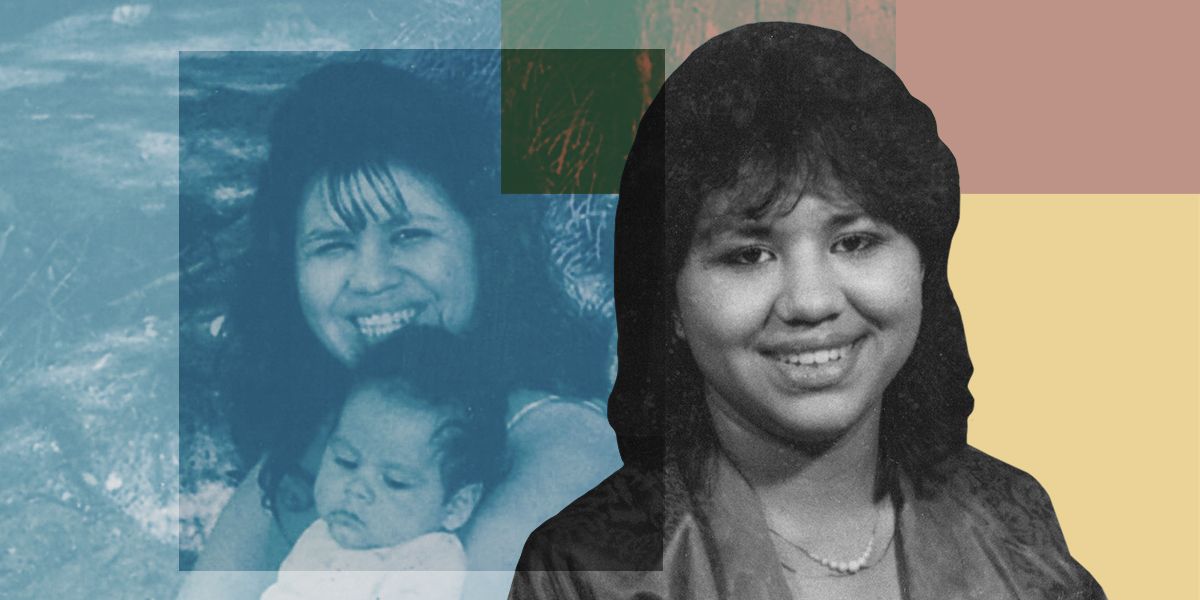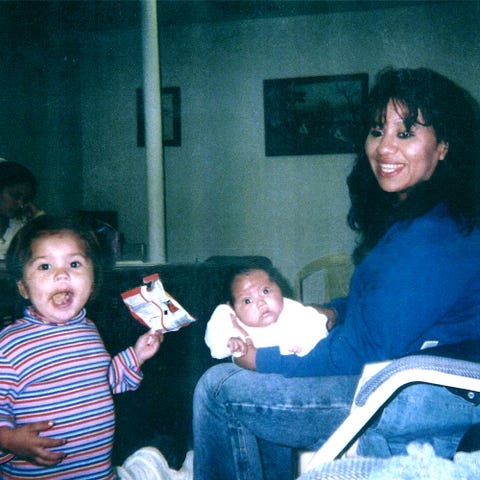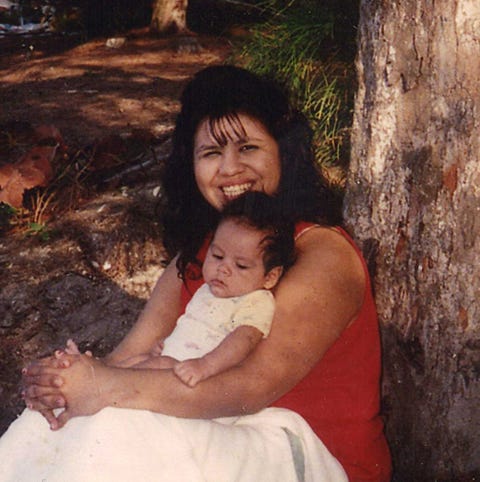Products You May Like
On February 15, 2007, Melissa Lucio’s 2-year-old daughter, Mariah, fell down the stairs of their Harlingen, Texas, home. Two days later, Mariah stopped breathing and died. After calling 911, Lucio was whisked into an interrogation room and accused of killing her little girl. After a contentious trial, Lucio was convicted of capital murder and sentenced to death.
Despite substantive doubts surrounding the real cause of Mariah’s death, a clear rush to judgement by law enforcement, and a dubious “confession” obtained after five hours of grueling police interrogation, Lucio is scheduled to die by lethal injection on April 27, 2022. She will be the first Latina executed in Texas.
As the date quickly approaches, Lucio’s supporters are doing everything they can to stop what they call an irreversible injustice. Her attorneys filed a clemency petition with new evidence they believe indicates she was wrongfully convicted. The Innocence Project has started a petition urging clemency. And on March 10, 26 former death row inmates wrote to Texas Governor Greg Abbott begging him to either cancel or commute Lucio’s impending execution. In an exclusive essay for ELLE.com, Sabrina Butler-Smith, a death row exoneree who signed the letter, says she knows the mental torture of wrongly waiting to die for murdering someone you loved—because she has been there herself.
I have never met Melissa Lucio, but we have a lot in common. Both of us lost our babies. Both of us were hauled into police interrogations mere hours after their deaths, still numb and in shock. Both of us were coerced, convicted of murder, and sentenced to die for killing our children.
The difference between Melissa and I, is that I was lucky enough to get a new trial. My attorneys were able to show that my nine-month-old son, Walter, died from a hereditary kidney condition. There was no murder and, after six and a half years in prison, I was cleared of any wrongdoing.
Fourteen years after being convicted of capital murder, Melissa remains on death row. And unless she is granted clemency, the state of Texas will execute her for the murder of her 2-year-old daughter, Mariah, who died two days after tragically falling down a flight of stairs at their home in Harlingen.
Until you have walked in our shoes, there is no way to know how you will react after losing a child—or how you will react to being accused of killing them. For me, it was an out of body experience. I kept telling police that I didn’t know why my baby died; They kept throwing my statements in the trash. After four hours of being berated while trapped in an interrogation room, I just wanted them to stop. I was tired. I was broken. Finally, an officer handed me a statement that said I had hit my baby and that’s what killed him. I resisted in the only way I could. I signed my name in the wrong place on the confession.
Melissa was also a victim of coercive interrogation tactics by police in the midst of unimaginable grief. Officers, some of them armed, yelled at and threatened Melissa, as evidenced in the clemency application filed by Melissa’s lawyers last week. One detective purportedly screamed: “[i]f I beat you half to death like that little child was beat, I bet you you’d die too.” Melissa, who was pregnant with twins at the time, asserted her innocence more than 100 times. At some points, she even said, “I don’t know what you want me to say.”
Melissa has a low IQ, struggled with addiction and poverty, and is a survivor of child sexual abuse and domestic violence, as the clemency application states. Starting at six years old, she was sexually abused by two adult men in her family. Later, she was repeatedly physically abused by two separate partners.
Two nationally recognized experts in false confessions who reviewed Melissa’s case have said that her cognitive impairments and history of trauma made her especially vulnerable to manipulative, intimidating interrogation techniques. As someone who has also survived abuse, I know that being submissive can be a way to try to make the abuse stop, at least in the moment.
Just before 3:00 a.m., after more than five hours of unrelenting, hostile questioning—and with no food or rest—Melissa gave up. She told officers, “I guess I did it.” Then, she went along with their demands to reenact a murder that never happened.
Melissa’s response to the interrogation was all the prosecution had to claim she was responsible for Mariah’s injuries. She had no history of abusing her children, as her clemency application documents. There was no physical evidence or eyewitnesses that connected Melissa to Mariah’s death. In fact, one of Melissa’s other children said he saw Mariah fall down the stairs. “Based on a rush to judgement and a biased and inadequate death investigation, the State extracted an unreliable ‘confession’ and used false scientific evidence to convict Melissa Lucio of a crime she did not commit and in fact never occurred,” Vanessa Potkin, one of Melissa’s attorneys and the director of special litigation with the Innocence Project, said in a statement. “What we know today is this: Mariah died from medical complications after an accidental fall. She was not murdered.”
At Melissa’s trial in 2008, a psychologist was available to testify about how Melissa’s vulnerabilities—including her history as an abuse survivor—would help explain her reaction to the interrogation. However, according to the new clemency application, the judge did not allow the expert to testify before the jury had to decide Melissa’s fate. So, the jury never heard an explanation as to why Melissa might take responsibility for something she didn’t do.
Five jurors from Melissa’s trial have now come forward to say they have serious concerns about evidence withheld from them at the trial. One juror, in a declaration attached to Melissa’s clemency application, wrote “[t]he fact that you can’t pinpoint what caused Mariah’s death means that [Melissa] shouldn’t be executed.”
In a letter to Texas Governor Abbott, 26 people who have been exonerated from death row with evidence of their innocence (including me) also urged him to stop Melissa’s execution. We told Gov. Abbott that we believe that there is a “very real risk that an innocent mother will be killed.”
As we wait for a response, support for Melissa continues to grow. An Innocence Project petition to stop Melissa’s execution has reached 137,252 signatures. On March 25, a bipartisan group of more than 80 members of the Texas House of Representatives signed a letter asking Gov. Abbott to change her death sentence. The letter states that Melissa, “was sentenced for a murder that, simply put, did not take place, and no eyewitness account exists saying otherwise. [Her] case is one that gives even the strongest death penalty proponents among us pause.”
I was only 18 when I was wrongfully convicted of murder. I was thrown in jail, and not allowed to attend my baby’s funeral. As a death row prisoner, I was left alone in my cell for 23 hours a day. It was a nightmare from which I couldn’t wake up. One day, my other son, Danny, called me in prison. He must have been around five at the time. “Are they going to kill you with a needle?” he asked. That’s the sort of question that has been hanging over the heads of Melissa’s 11 children for more than a decade, tearing her family apart.
Since being exonerated, I speak publicly about how wrongful convictions can and do happen. Sadly, our stories are not unique. According to the Innocence Project, about 20 percent of the women who were wrongfully convicted of harming a child were coerced into falsely confessing.
I pray that Melissa lives. I hope that she can be with her children and her grandchildren. And I hope that one day she also has the chance to tell her own story. Just like I did.
The deck is stacked against women like us. Women who are poor, isolated. Women of color. But it doesn’t have to be that way. We can put a stop to Melissa’s execution. It’s the right thing to do. There is still time to avoid making this horrifying mistake.
This content is created and maintained by a third party, and imported onto this page to help users provide their email addresses. You may be able to find more information about this and similar content at piano.io



